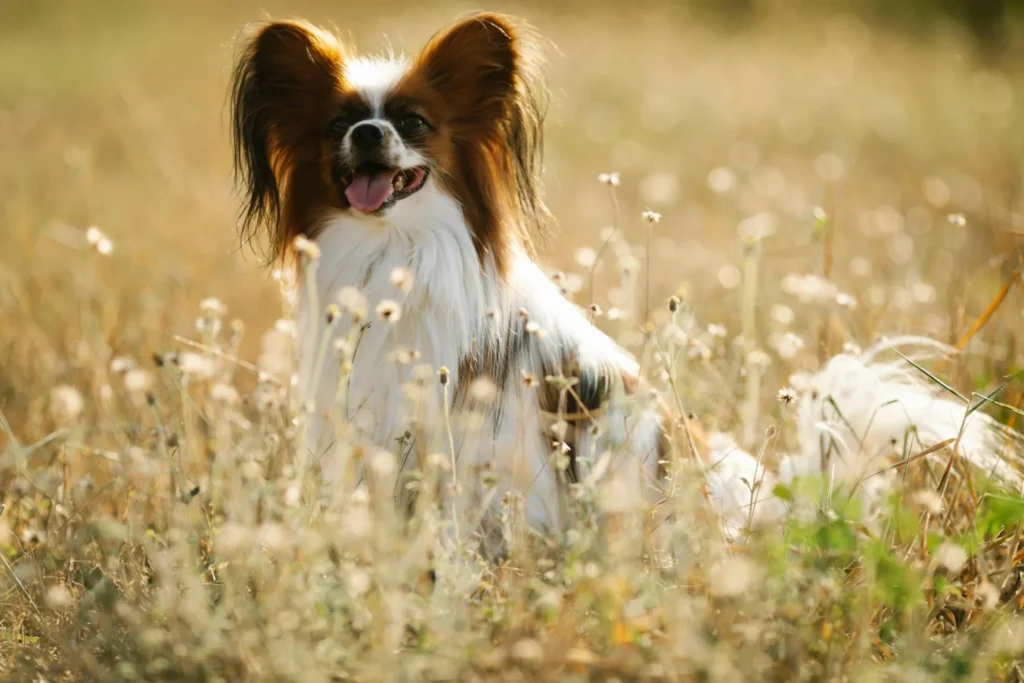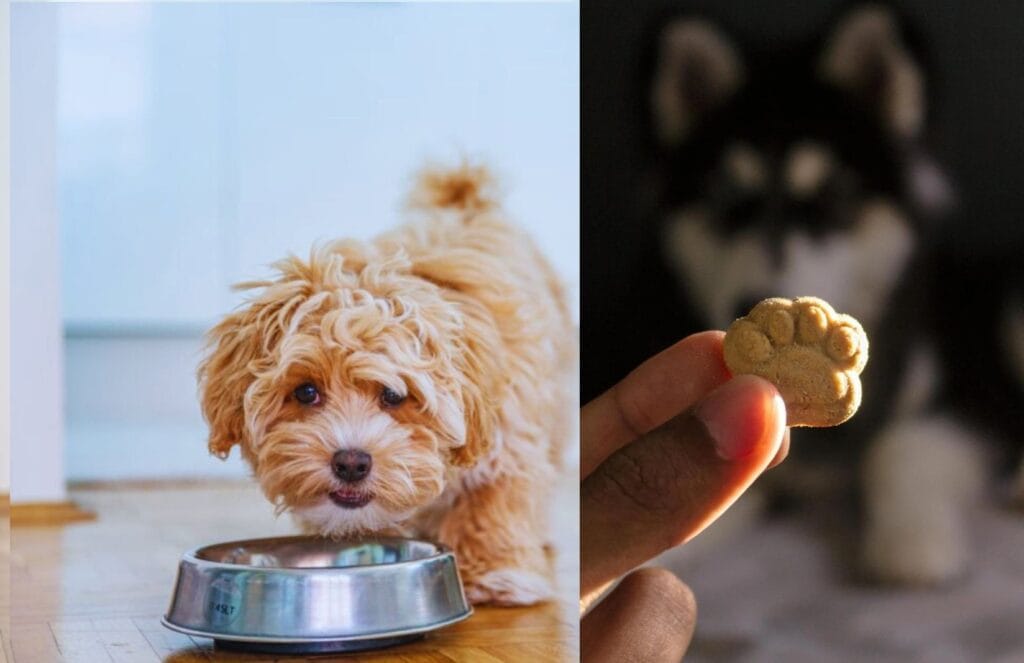Introduction
Poodles, with their regal bearing and hypoallergenic coats, are often hailed as the aristocrats of the canine world. However, these intelligent and affectionate companions thrive on companionship, be it with their human families or fellow furry friends. In this comprehensive guide, we’ll delve into the fascinating dynamics of poodles cohabiting with various pets and dog breeds, uncovering their unique compatibility and providing insights to foster harmonious multi-pet households.
Poodles and Feline Friends: Can Cats and Poodles Coexist?
The age-old question: can dogs and cats truly get along? When it comes to poodles and felines, the answer is a resounding “yes”! Poodles are known for their gentle, non-aggressive nature, making them excellent candidates for cohabiting with cats.
| Poodle Variety | Compatibility with Cats |
|---|---|
| Standard Poodle | High compatibility, but proper introductions and supervision are crucial due to their larger size. |
| Miniature Poodle | High compatibility, with their smaller stature often making them less intimidating to feline companions. |
| Toy Poodle | Extremely high compatibility, as their petite size poses little threat to most cats. |
However, it’s essential to remember that every poodle and cat has a unique personality, and early socialization and slow, controlled introductions are key to fostering a peaceful coexistence.
Poodles and Canine Companions: A Breed-by-Breed Compatibility Guide
Poodles are generally social and adaptable, making them excellent candidates for multi-dog households. However, their compatibility with other breeds can vary based on factors such as size, energy levels, and temperament.
| Breed | Compatibility with Poodles |
|---|---|
| Chihuahua | Moderate compatibility. Chihuahuas’ bold personalities may clash with poodles’ more reserved nature. |
| Pitbull | High compatibility with proper introductions and socialization. Pitbulls and poodles can form strong bonds. |
| Rabbit | Low compatibility. Rabbits’ prey instincts may trigger poodles’ hunting behaviors, making cohabitation challenging. |
| Golden Retriever | Extremely high compatibility. Both breeds share gentle, affectionate natures and make excellent playmates. |
| German Shepherd | High compatibility with socialization. German Shepherds’ protective instincts can clash with poodles’ more reserved temperaments. |
| Husky | Moderate compatibility. Huskies’ high energy levels may overwhelm some poodles, but with proper exercise and training, they can coexist. |
| Jack Russell Terrier | Moderate compatibility. Jack Russells’ bold, energetic personalities may clash with poodles’ more subdued demeanor. |
| Labrador Retriever | Extremely high compatibility. Both breeds share gentle, friendly natures and make excellent companions. |
| Shih Tzu | High compatibility, especially with Miniature and Toy Poodles, as their smaller sizes and calm temperaments complement each other well. |
| Schnauzer | High compatibility, particularly with Standard Poodles, as both breeds share similar energy levels and intelligence. |
| Yorkshire Terrier | High compatibility with Toy and Miniature Poodles, as their smaller sizes and affectionate natures make them excellent companions. |
“Poodles are incredibly adaptable and can thrive in multi-pet households with proper introductions, socialization, and ongoing positive reinforcement training,” says Jane Doe, a certified dog trainer and behaviorist.
Tips for Successful Multi-Pet Households with Poodles
Integrating a poodle into a multi-pet household requires patience, preparation, and a commitment to creating a safe and harmonious environment for all. Here are some essential tips:
- Gradual Introductions: Introduce new pets slowly and in a controlled environment, allowing them to become accustomed to each other’s scents and presence before physical interaction.
- Provide Separate Spaces: Ensure each pet has their own designated space, such as a crate, bed, or room, where they can retreat and feel secure.
- Positive Reinforcement Training: Reinforce desired behaviors with rewards and praise, focusing on teaching basic obedience commands like “sit,” “stay,” and “leave it.”
- Exercise and Mental Stimulation: Poodles thrive on physical and mental activity. Engaging them in interactive playtime, puzzle toys, and training exercises can help minimize potential conflicts.
- Supervision and Management: Never leave pets unsupervised during the initial introduction and acclimation periods, and manage interactions carefully to prevent potential altercations or resource guarding.
- Seeking Professional Help: If you encounter persistent issues or aggressive behaviors, don’t hesitate to consult with a certified animal behaviorist or trainer for guidance and support.
Conclusion
Poodles are social, adaptable companions that can thrive in multi-pet households with proper preparation, training, and management. By understanding their unique compatibility with various pets and breeds, providing a safe and enriching environment, and fostering positive interactions, you can create a harmonious home where your poodle and their furry friends can coexist peacefully. Remember, patience, consistency, and a commitment to your pets’ well-being are the keys to a successful multi-pet household.
FAQs
Q: Can poodles live with multiple cats or dogs?
A: Yes, poodles can live harmoniously with multiple cats or dogs, provided they are properly introduced, socialized, and their interactions are carefully managed.
Q: Are certain poodle varieties better suited for multi-pet households?
A: While all poodle varieties can potentially coexist with other pets, Miniature and Toy Poodles may be better suited for smaller companions like cats or toy breed dogs due to their smaller size and lower potential for accidental injury.
Q: How can I introduce a new pet to my existing poodle?
A: Introduce new pets gradually, in a controlled environment, allowing them to become accustomed to each other’s scents and presence before physical interaction. Provide separate spaces for each pet and supervise interactions closely during the initial acclimation period.
Q: What should I do if my poodle exhibits aggression or resource guarding with other pets?
A: If your poodle exhibits aggressive behaviors or resource guarding (possessiveness over food, toys, or spaces), seek the guidance of a certified animal behaviorist or trainer immediately. They can provide tailored training and management strategies to address these issues safely and effectively.
Q: Can poodles be left unsupervised with other pets?
A: It’s generally not recommended to leave poodles unsupervised with other pets, especially during the initial introduction and acclimation periods. Supervision and careful management are crucial to prevent potential altercations or injuries.



